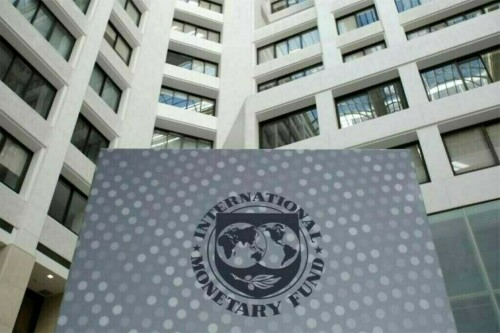IMF Anticipates Lower Economic Forecasts Amid Trade Tensions
Washington D.C.: The International Monetary Fund (IMF) is set to revise its economic forecasts downwards due to escalating trade disputes and significant transformations in the global trade landscape, according to IMF Managing Director Kristalina Georgieva. However, she stated on Thursday that a worldwide recession is not anticipated.
Georgieva highlighted that national economies are facing challenges because of a restructuring of the global trading system. This shift, triggered by recent tariffs imposed by the United States and retaliatory actions from China and the European Union, has resulted in unprecedented uncertainty in trade policies and considerable instability in financial markets.
“Disruptions have consequences. Our updated growth projections will reflect noticeable reductions, but not a recession,” she stated, adding that the revised outlook will also include increased inflation forecasts for certain nations.
“To quote from ‘The Wizard of Oz’, we’re not in Kansas anymore,” Georgieva remarked to IMF staff and reporters at the organization’s headquarters in Washington, ahead of the IMF and World Bank spring meetings scheduled for the following week.
Georgieva cautioned that heightened uncertainty also amplifies the potential for financial market instability, pointing out that recent fluctuations in US Treasury yield curves should serve as a warning. “If financial conditions deteriorate, everyone will suffer,” she warned.
US President Donald Trump has disrupted the international trading system through a series of new tariffs, including a 10% duty on goods from all countries, with higher rates for some. Although, these measures have been temporarily suspended for 90 days to facilitate negotiations. China, the EU, and other nations have responded with retaliatory measures.
In January, the IMF projected global growth at 3.3% for both 2025 and 2026. The updated World Economic Outlook is slated for release on Tuesday.
While Georgieva, speaking at the IMF headquarters in Washington, provided no specific details regarding the expected revisions, she cautioned that prolonged uncertainty would be costly and the repercussions of the trade restructuring would be “significant.”
A survey of economists by Reuters suggests that the aggressive US tariff policy is expected to cause a substantial slowdown in the US economy this year and the next. The probability of a US recession within the next year has surged to 45%, marking the highest level since December 2023, up from 25% the previous month.
Georgieva noted that trade tensions have been escalating for some time and have now reached a critical point. She urged countries to respond judiciously to the abrupt and extensive changes observed in tariffs, which have propelled the US effective tariff rate to levels unseen in many generations, prompting responses from other countries.



Comments (0)
No comments yet. Be the first to comment!
Leave a Comment